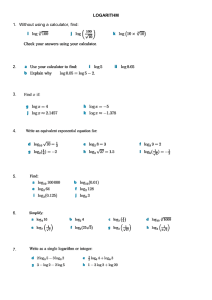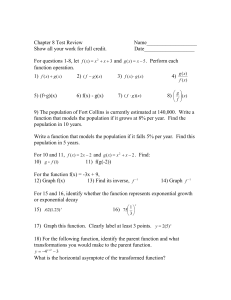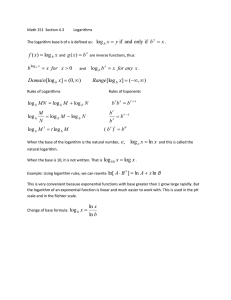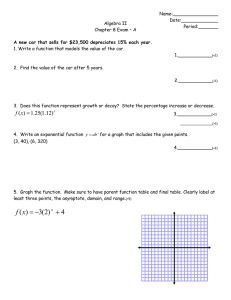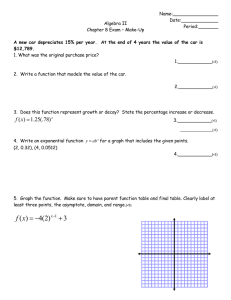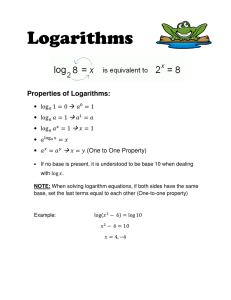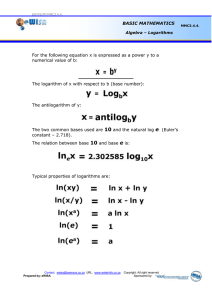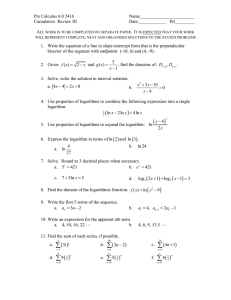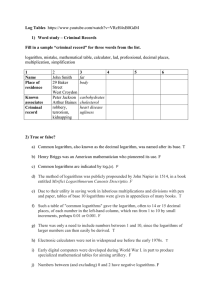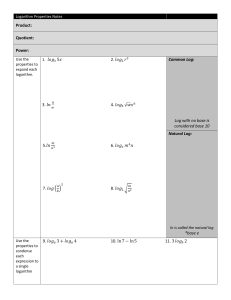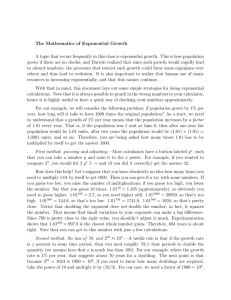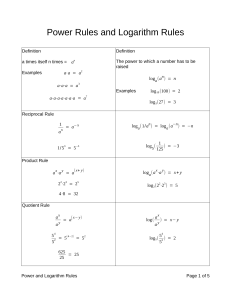Activity 4.5 Logarithms and Exponential Models 10 x
advertisement
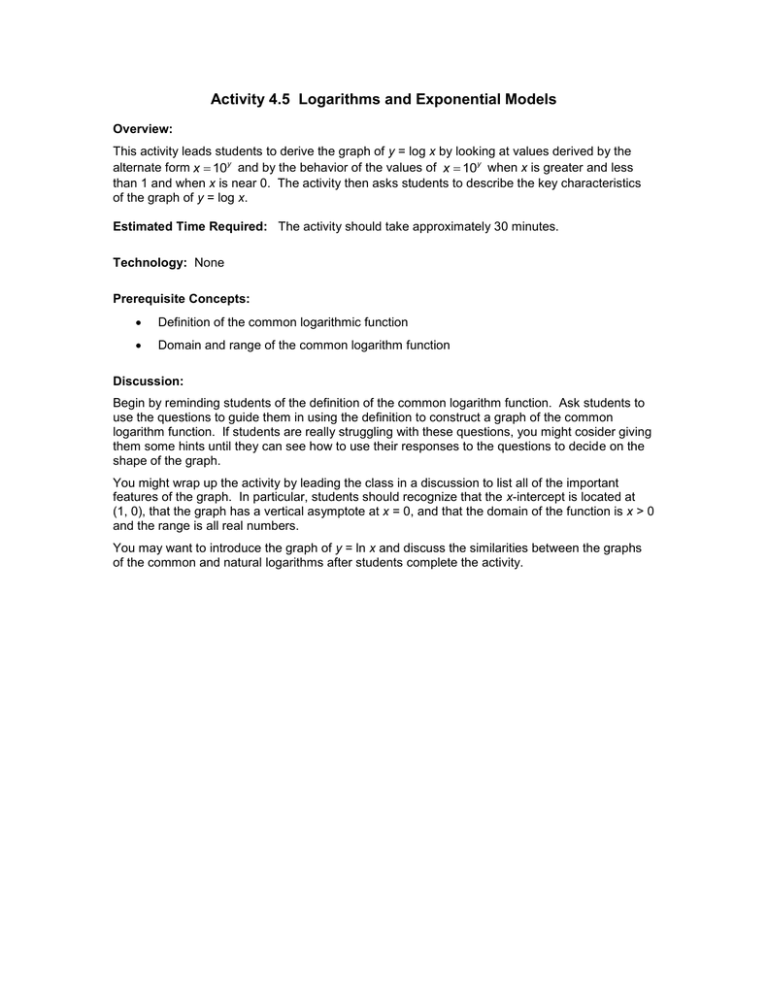
Activity 4.5 Logarithms and Exponential Models Overview: This activity leads students to derive the graph of y = log x by looking at values derived by the alternate form x 10y and by the behavior of the values of x 10y when x is greater and less than 1 and when x is near 0. The activity then asks students to describe the key characteristics of the graph of y = log x. Estimated Time Required: The activity should take approximately 30 minutes. Technology: None Prerequisite Concepts: Definition of the common logarithmic function Domain and range of the common logarithm function Discussion: Begin by reminding students of the definition of the common logarithm function. Ask students to use the questions to guide them in using the definition to construct a graph of the common logarithm function. If students are really struggling with these questions, you might cosider giving them some hints until they can see how to use their responses to the questions to decide on the shape of the graph. You might wrap up the activity by leading the class in a discussion to list all of the important features of the graph. In particular, students should recognize that the x-intercept is located at (1, 0), that the graph has a vertical asymptote at x = 0, and that the domain of the function is x > 0 and the range is all real numbers. You may want to introduce the graph of y = ln x and discuss the similarities between the graphs of the common and natural logarithms after students complete the activity. Activity 4.5 Logarithms and Exponential Models Recall that y log x x 10 y y Using this fact in answering the following questions, generate the graph of the common logarithm function f x log x x 1. If x 1 , then what does the equation x 10 y say that y has to be? 2. If x 1, then according to the equation x 10 y , what has to happen to y? 3. If x 1 , then according to the equation x 10 y , what has to happen to y? 4. If x is close to zero, then 10 has to be close to zero, too. What does y have to do in order y y to make 10 close to zero? 5. If x 0 , then according to the equation x 10 y , what has to happen to y? Once you have a sketch of f x log x , describe its key characteristics. For example, name any intercepts, asymptotes, is f increasing or decreasing, concavity, domain, range, etc.
